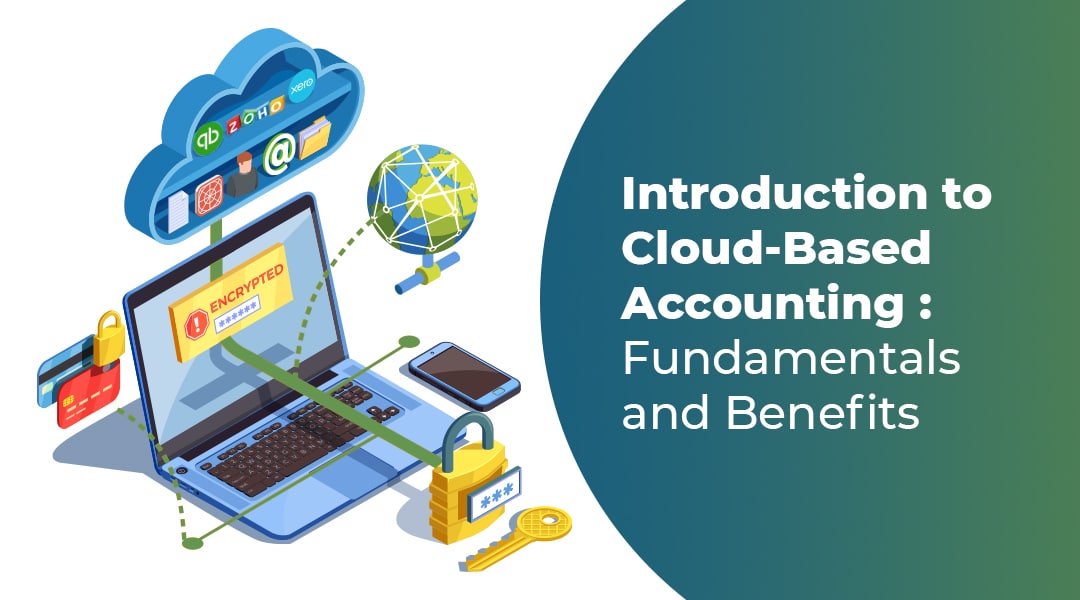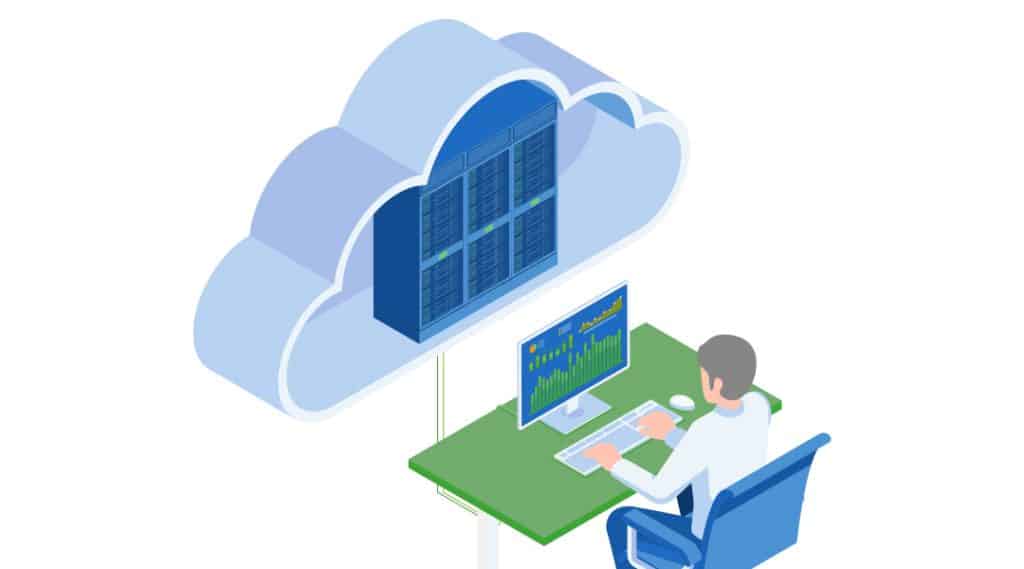In the rapidly evolving digital landscape, where innovation sets the pace, the realm of accounting has undergone a remarkable transformation. Cloud-based accounting systems have emerged as the catalysts of change, reshaping financial management practices across industries. With their unparalleled advantages over traditional on-premise software, cloud-based solutions have become the go-to choice for businesses of all sizes. Due to this, it has become an important skill for aspiring finance professionals as well.
In this article, we delve into the dynamic world of cloud-based accounting, illuminating its core fundamentals and the transformative benefits it offers. From streamlining financial processes to enhancing accessibility and scalability, cloud-based accounting has become an indispensable tool for businesses seeking agility, efficiency, and a competitive edge, as well as an undeniable requirement to make it big in the field of finance
What is Cloud-based Accounting?
Cloud-based accounting, also known as online accounting or Software as a Service (SaaS) accounting, refers to the use of web-based applications and platforms to manage financial processes and transactions. Instead of relying on locally installed software, cloud-based accounting allows users to access their accounting software and data securely through an internet connection.
One of the key aspects of cloud-based accounting is that it stores financial data in secure remote servers. This eliminates the need for businesses to maintain their own infrastructure, perform regular software updates, and manage backups. Cloud accounting softwares are typically subscription-based, offering scalability and flexibility to adapt to the evolving needs of businesses.
Different Types of Cloud Accounting Software
1. Web-based Applications and Platforms
Cloud-based accounting harnesses the power of web-based applications and platforms to revolutionise financial management. With a simple internet connection, businesses can conveniently access their accounting software and data from anywhere, anytime. This accessibility empowers teams to collaborate seamlessly and make informed decisions in real-time, irrespective of their physical location. Whether it’s managing invoices, tracking expenses, or generating financial reports, the web-based nature of cloud accounting offers unparalleled convenience and flexibility.
2. Software-as-a-Service (SaaS) Accounting
Say goodbye to the hassle of installing and maintaining complex accounting software on local servers. Cloud-based accounting operates on the Software-as-a-Service (SaaS) model, where the software is hosted and managed by a third-party provider. This means businesses can enjoy the benefits of robust accounting software without the burden of infrastructure management. Updates and upgrades are automatically handled by the provider, ensuring that businesses always have access to the latest features and improvements. The SaaS approach streamlines the accounting process, allowing businesses to focus on their core competencies.
3. Secure Remote Servers and Data Storage
The security of financial data is paramount in today’s digital landscape, and cloud-based accounting makes it easier to achieve. With cloud accounting, financial information is stored on secure servers hosted by trusted providers. These servers are equipped with advanced security measures, including encryption, firewalls, and regular backups. By entrusting data to reputable cloud accounting providers, businesses can rest assured that their sensitive information is protected against unauthorised access, loss, or damage. The robust infrastructure and rigorous security protocols employed by cloud providers ensure the utmost data integrity and confidentiality.
4. Subscription-based Model and Scalability
Gone are the days of purchasing costly accounting software licences and being tied down to rigid systems. Cloud accounting operates on a subscription-based model, allowing businesses to choose a plan that suits their specific needs and pay only for the features and resources they require. This scalable approach ensures that businesses can easily adjust their subscription as their needs evolve, whether it’s scaling up during periods of growth or downsizing during times of crisis. The flexibility offered by cloud accounting enables businesses to stay agile and responsive to changing market dynamics without incurring unnecessary costs.
Benefits of Cloud-based Accounting
1. Accessibility and Flexibility
Cloud-based accounting provides the convenience of accessing financial data and performing accounting tasks from anywhere, at any time. As long as there is an internet connection, users can log in to the accounting system using various devices, including laptops, tablets, or smartphones. This flexibility enables real-time collaboration among team members, remote work abilities, and efficient decision-making.
- A remote team can access and update financial data whenever required, allowing for effortless collaboration and immediate access to the latest information.
- Business owners and managers can review financial reports and monitor performance on their mobile devices on the go.
- Accountants, bookkeepers and other trained finance professionals can remotely provide financial services to clients without physically visiting their offices.
2. Cost-Efficiency
Cloud-based accounting delivers cost-efficiency in various aspects of financial accounting. It’s an invaluable asset for businesses that prefer maximum productivity without having to worry about tight budgets.
- Eliminates upfront costs: Cloud-based accounting eliminates the need for businesses to invest in expensive hardware and software infrastructure. Instead, they can subscribe to a pay-as-you-go cloud accounting service rather than paying beforehand.
- Pay for what you need: With cloud accounting, businesses only pay for the features and resources they require. This flexible pricing model allows for cost optimisation and eliminates the need to invest in unnecessary software licences or infrastructure.
- Reduced IT overhead costs: Cloud accounting shifts the responsibility for software updates, maintenance, and security to the service provider. This reduces the need for in-house IT staff and lowers overall IT expenses.
- Access to updated features and security: Cloud accounting service providers ensure that the software is regularly updated with the latest features and security patches. This eliminates the cost and effort associated with manual software updates and enhances data security measures.
- Cost reallocation for business priorities: By eliminating upfront costs and reducing IT overhead expenses, businesses can redirect their financial resources towards other core activities, such as expansion plans, marketing initiatives, or product development. This allows for better financial stability and increased profitability.
3. Data Security and Backup
Cloud accounting offers robust security measures to protect financial data. Reputable cloud service providers employ advanced encryption techniques, firewalls, and security protocols to safeguard sensitive information. Regular data backups are performed automatically, minimising the risk of data loss. This ensures that businesses have reliable and secure access to their financial records.
Cloud accounting platforms employ advanced security measures, including data encryption, firewalls, and multi-factor authentication, to protect sensitive financial information.
- Regular backups and redundant data storage ensure that financial data is safe from hardware failures or disasters.
- Reliable uptime and Service Level Agreements (SLAs) guarantee that the accounting system is accessible and operational whenever needed.
4. Integration with Other Business Applications
Cloud-based accounting systems often integrate seamlessly with other business applications, such as Customer Relationship Management (CRM) software, inventory management systems, or payment gateways. This integration streamlines data flow, reduces manual data entry errors, and provides a holistic view of business operations. It enables the synchronisation of data across different systems, improving efficiency and enabling informed decision-making.
- Integration with a Customer Relationship Management (CRM) system enables a seamless flow of customer data and financial information, providing a complete view of customer interactions and financial transactions.
- Integration with inventory management systems allows for real-time tracking of inventory levels, automating inventory valuation and streamlining order fulfilment.
- Integration with payment gateways enables automatic syncing of sales transactions, simplifying revenue recognition and cash flow management.
5. Scalability and Adaptability
Cloud-based accounting solutions can easily scale up or down based on business needs, accommodating growth or seasonal fluctuations without disruptions. Whether it’s expanding to new markets, adding more users, or incorporating additional features, cloud accounting offers the flexibility to adjust resources accordingly. This scalability ensures that businesses can adapt to changing requirements without significant investments in infrastructure or software upgrades.
- A growing e-commerce business can easily handle increased transaction volumes without worrying about infrastructure limitations.
- A seasonal business can scale up during peak periods and scale down during slower periods, adjusting subscription levels accordingly.
- A rapidly expanding startup can quickly onboard new team members without the need for additional hardware or software installations.
Wrapping Up
Cloud-based accounting has emerged as a game-changer for businesses seeking efficient financial management solutions. Embracing cloud-based accounting not only simplifies financial processes but also enables businesses to focus on core activities and drive growth. As technology continues to advance, cloud-based accounting is expected to play a crucial role in shaping the future of financial management.
Don’t get left behind in the digital finance landscape. Learn Cloud Based Accounting from experienced CAs at GGC’s Practical Training Academy. Our online finance courses with certificates will make you a pro in both futuristic and fundamental aspects of finance. Start your learning journey today!




